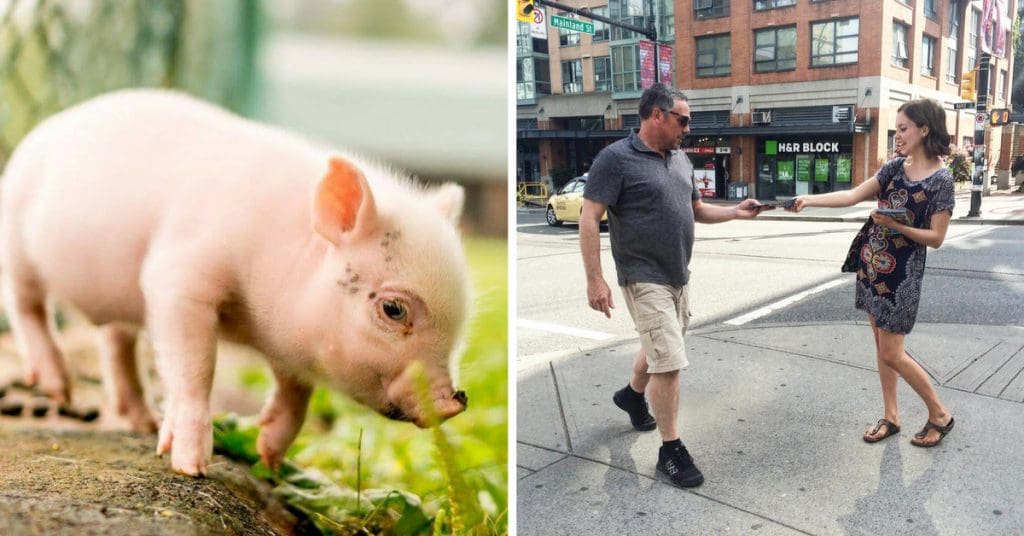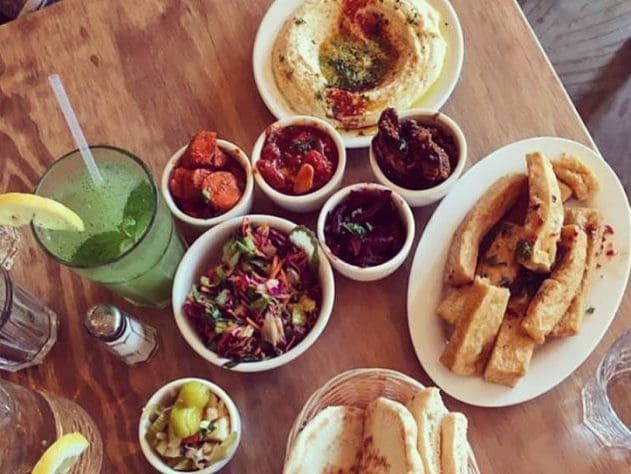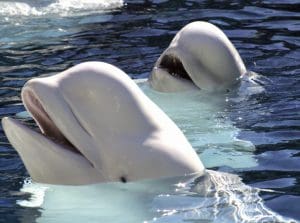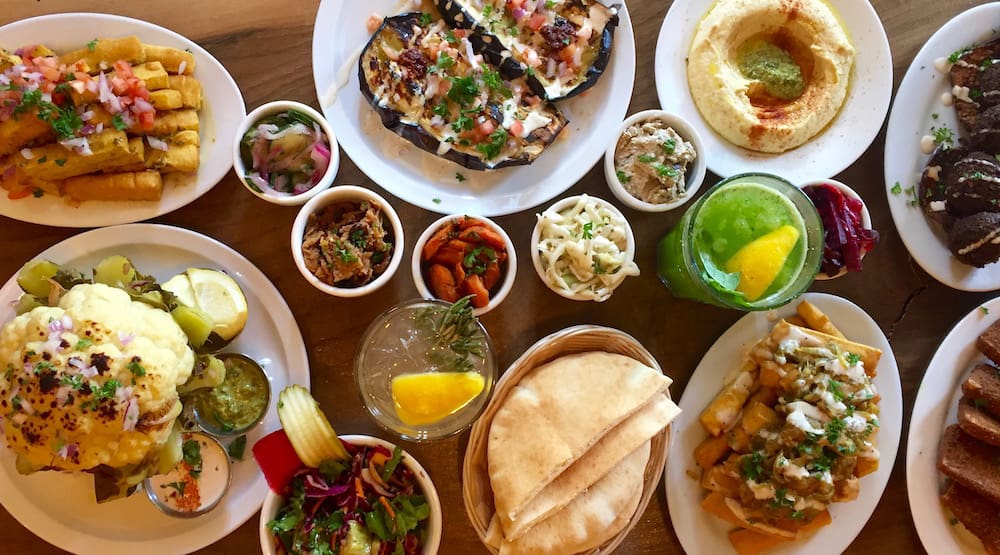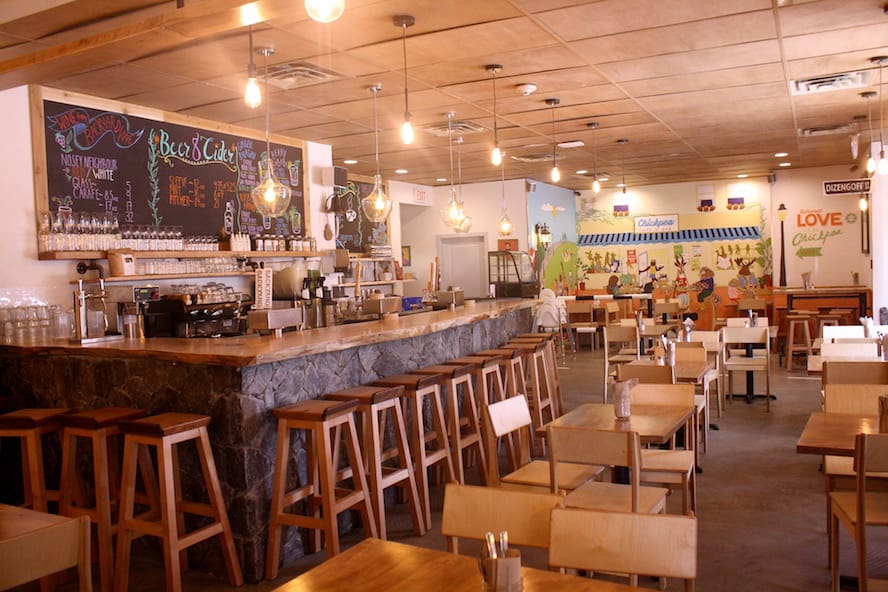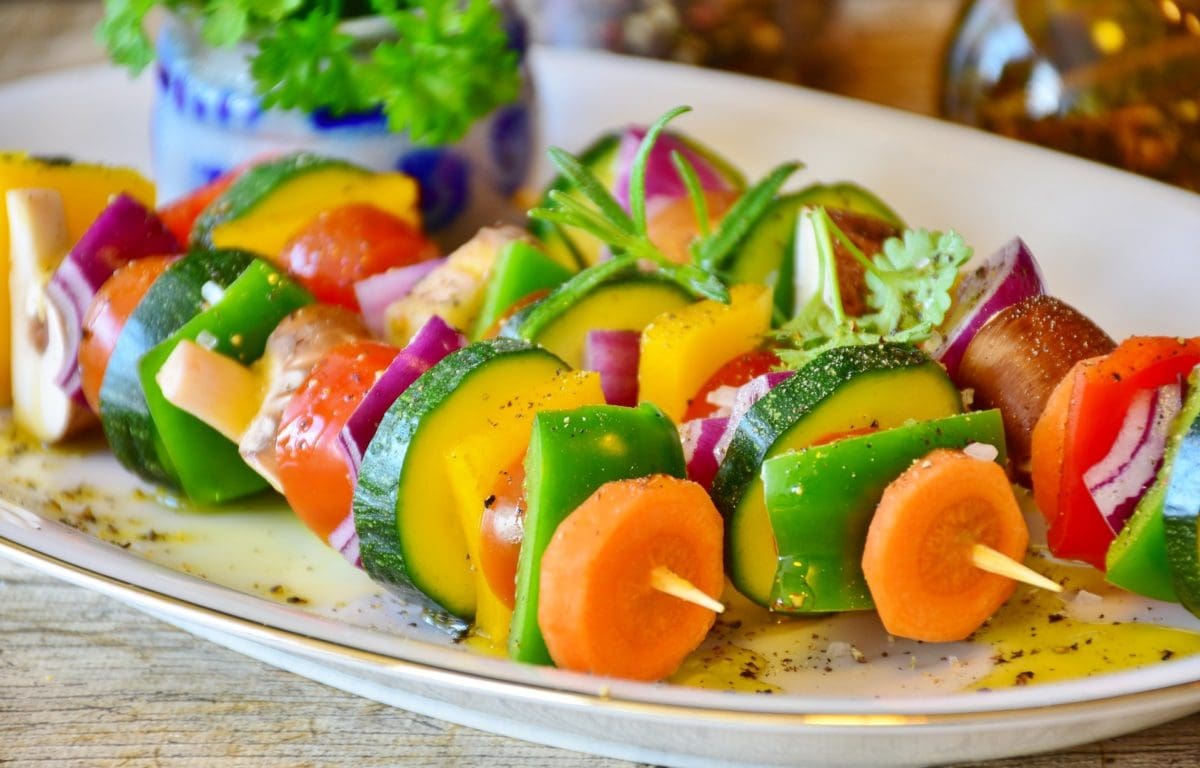
As knitting and other needlework becomes more popular every day, new stores (especially online) are sprouting – including exciting companies like Vegan Yarn! We caught up with vegan owner Heidi Braax, who, as she became more interested in knitting, got tired of being shuffled over to the “Acrylic Wall of Shame” (I’ve been there, Heidi!) The result is her own cruelty-free, ethically sourced and hand-dyed yarn company.
What led you to start Vegan Yarn?
I started Vegan Yarn after realizing there was really no artisan dyed yarn available that was also vegan-friendly. There were some basic, commercially dyed yarns, some of which were ok quality-wise, but none that really got me very excited, especially compared to my knit night friends who had all kinds of beautiful, one of a kind yarns. My background is in costuming for theatre and film, and I had some experience dyeing fabric, so it was a natural step to me to try dyeing my own yarn.
How do you differentiate yourself from other yarn businesses?
Being plant-based and sustainably-minded is already pretty unique, but even as more people are starting plant-based yarn businesses, which are still currently super rare, I think there’s plenty of room for more. After all, if you go to a yarn show like Fibres West, or Knit City, the place is full of hand dyed animal fibre yarn businesses, and they all find a way of making themselves stand out in their own way and do very well. Every dyer has their own way of seeing colour, and their own techniques. If you put two dyers to work with the same yarn, and the same dyes, you’d still probably get very different results. This is something I love about dyeing yarn, the individual artist really shows in their work.
What are your biggest challenges?
One is simply knowing when to stop. I could easily work non-stop, and still be overwhelmed with work to do and orders to fill. Since more and more people are discovering that they can bring fibre arts into their vegan lifestyle (or vice versa), demand is becoming much higher. Since I’m still working solo at the business, it can get a bit crazy over here. So, its a challenge, but it’s a good one.
The other challenge is managing to keep yarn in stock, while managing to keep a free path through our living room! This summer we received a shipment of sock yarn that was about 220 kilos! Like most small businesses that work with physical products, parts of the growth phase can be awkward.
How do you ensure your materials are ethically sourced?
Some of them are easy. All of our cotton yarn is certified organic and fair trade, and the company definitely puts the growers and workers first. With other companies that aren’t certified, its important to ask questions. Luckily there is a growing trend towards transparency, and businesses are getting better at this. I’ve realized that the more questions we ask, as business owners and as individuals, the more people who have the power to make decisions realize what’s important to their clients. If a mill owner realizes that their clients see ethical sourcing and sustainability as important, they will take an interest, even if only out of a sense of improving their product’s perceived value.
Tell us about your products. Which is your favourite?
I hand-dye all of our yarn in-house in New Westminster, BC with the exception of the Pakucho Original yarn and fibre, which is naturally pigmented organic, fair trade cotton. I’m definitely inspired by anime (Japanese animated film and television), which I’m a big fan of. I’m also a natural dyer, so some of the yarns I dye using plants and natural extracts and minerals. I’ve been starting a bit of a dye garden over the last few years, where I grow indigo, madder, marigold and dyer’s chamomile. I also collect black walnuts at the park by my house (don’t worry, I always make sure to leave plenty for the squirrels). To be honest, my favourite yarn is typically the yarn I’m currently working with, which, right now is Bellatrix, a fingering weight bamboo. I’m making a tank top.
Who are your customers? Is there a typical demographic?
Vegans, long time knitting enthusiasts who have tried just about everything and are looking for something new and fun, people with sensitivities or allergies and anime fans. Sometimes, we’ll get someone who is a combination of all or most of these, and they’re a ton of fun to meet! We actually get (seriously, for real) fan mail from people like that sometimes! Its hilarious to watch people at yarn shows. Sometimes we’ll hear, “VEGAN!” above the crowd, and someone will hustle over and they’ll fill their arms with yarn and have a huge grin on their face. People with severe wool allergies get to TOUCH EVERYTHING! YESSSS! Occasionally, a quiet, shy person will hover noiselessly over a specific colour that they clearly found on the website ahead of time, and bring it over to buy; they might have Totoro leggings, a Princess Mononoke backpack covered in buttons, purple hair and a secretive smile. Most likely they have plans to watch Princess Jellyfish or Kuro Mukuro later (subbed, not dubbed of course) while knitting their new Chieko, Mayaya or Ayame colourway yarn. If you ever thought knitters were strange, anime-knitters are next level! Luckily I’m one of them, so I speak from experience. Haha!
As knitting and other needlework continue to grow in popularity, do you think plant-based yarn is becoming more mainstream?
Yes! Since both fibre arts and veganism are both on the rise, and social media is bringing these two out of the closet, I think plant-based crafting is definitely only going to increase. Since starting out, I’ve personally witnessed many small yarn stores start to have (or increase the size of) plant yarn sections. Also, larger, big name suppliers adopt ‘vegan’ tags in their categories and searches online, which is proof that people are using those search terms, and the yarn businesses are paying attention. As demand for vegan-friendly yarn increases, yarn store owners are making a bigger effort to supply it.
Vegan Yarn can be contacted at: info@veganyarn.com
 Captive by JoAnne McArthur
Captive by JoAnne McArthur The Animals’ Agenda by Jessica Pierce and Marc Bekoff
The Animals’ Agenda by Jessica Pierce and Marc Bekoff Veganism in an Oppressive World by Julia Feliz Brueck
Veganism in an Oppressive World by Julia Feliz Brueck Beyond Beliefs by Melanie Joy
Beyond Beliefs by Melanie Joy What a Fish Knows by Jonathan Balcombe
What a Fish Knows by Jonathan Balcombe Carnivore Minds: Who These Fearsome Animals Really Are by G. A. Bradshaw
Carnivore Minds: Who These Fearsome Animals Really Are by G. A. Bradshaw Clean Meat: How Growing Meat Without Animals Will Revolutionize Dinner and the World by Paul Shapiro
Clean Meat: How Growing Meat Without Animals Will Revolutionize Dinner and the World by Paul Shapiro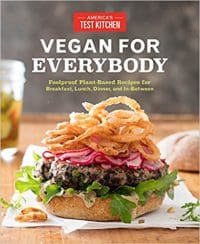 Vegan for Everybody by America’s Test Kitchen
Vegan for Everybody by America’s Test Kitchen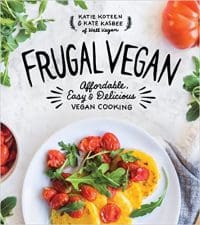 Frugal Vegan by Katie Koteen & Kate Kasbee
Frugal Vegan by Katie Koteen & Kate Kasbee Vegan Richa’s Everyday Kitchen by Richa Hingle
Vegan Richa’s Everyday Kitchen by Richa Hingle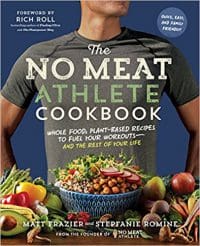 No Meat Athlete Cookbook by Matt Frazier & Stephanie Romine
No Meat Athlete Cookbook by Matt Frazier & Stephanie Romine all vegan shoes, bags, wallets, socks, chocolates
all vegan shoes, bags, wallets, socks, chocolates Vegan Yarn all vegan, hand-dyed, ethically sourced yarn
Vegan Yarn all vegan, hand-dyed, ethically sourced yarn LUSH (fresh, handmade cosmetics) easily identifiable as vegan or vegetarian
LUSH (fresh, handmade cosmetics) easily identifiable as vegan or vegetarian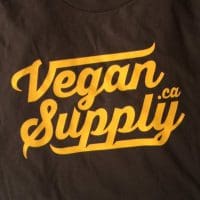 Vegan Supply all vegan food
Vegan Supply all vegan food Pureology all vegan, sulphate-free hair care products
Pureology all vegan, sulphate-free hair care products Kama Natural Soap – essential oil scented vegan soap, bath salts and candles (beeswax in balms and ointments)
Kama Natural Soap – essential oil scented vegan soap, bath salts and candles (beeswax in balms and ointments) Sephora – makeup and accessories, identifiable as vegan on website
Sephora – makeup and accessories, identifiable as vegan on website Bioethique Spa On 4th – 100% natural and vegan spa
Bioethique Spa On 4th – 100% natural and vegan spa Zimt Chocolate – all vegan chocolate bars and other goodies
Zimt Chocolate – all vegan chocolate bars and other goodies Kiss My Face – mostly vegan (some products have beeswax) personal care products, available at many local retailers
Kiss My Face – mostly vegan (some products have beeswax) personal care products, available at many local retailers Matt & Nat – vegan handbags and other goodies
Matt & Nat – vegan handbags and other goodies Emani Vegan Cosmetics – available at London Drugs
Emani Vegan Cosmetics – available at London Drugs Arbonne – plant-based health and beauty products
Arbonne – plant-based health and beauty products Red Rooster Winery (everything but Bantam)
Red Rooster Winery (everything but Bantam) Sumac Ridge Estate Winery (2015 and forward)
Sumac Ridge Estate Winery (2015 and forward) Big Rock Brewery (all but Honey Brown)
Big Rock Brewery (all but Honey Brown) Vancouver Island Brewing (all but Honey Brown)
Vancouver Island Brewing (all but Honey Brown)

 Sandhill Wines
Sandhill Wines 50th Parallel Estate Winery
50th Parallel Estate Winery Cedar Creek Estate Winery
Cedar Creek Estate Winery Hester Creek
Hester Creek Stag’s Hollow Winery
Stag’s Hollow Winery Tinhorn Creek Vineyards
Tinhorn Creek Vineyards Russell Brewing Company
Russell Brewing Company Okanagan Spring Brewery
Okanagan Spring Brewery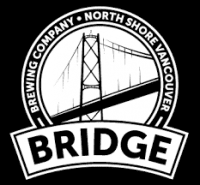 Bridge Brewing Company
Bridge Brewing Company
